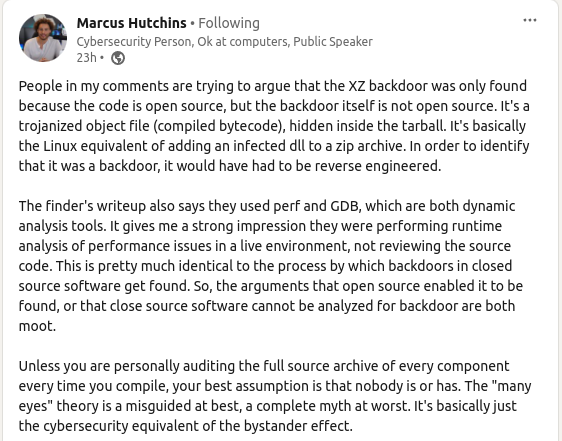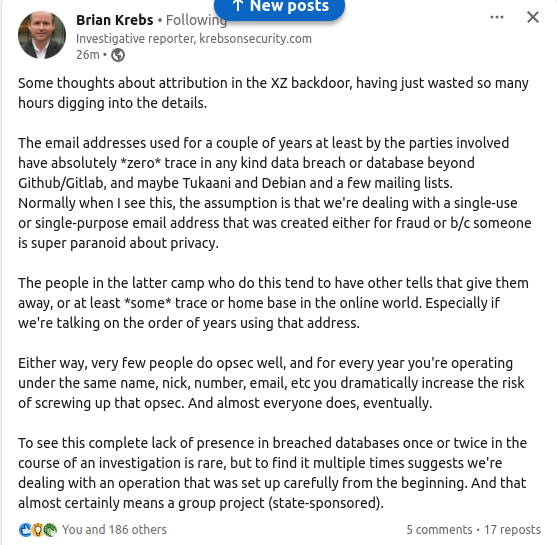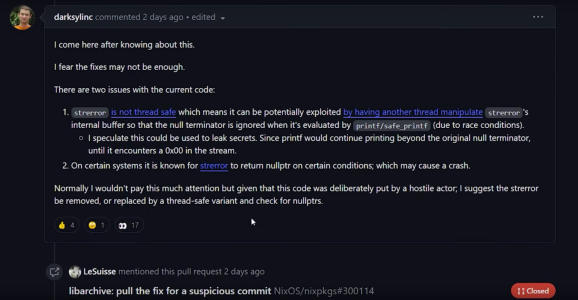Thats trivially true (same goes for open source affair), same for the possibility that the companies involved (or their clients) would have find out at some point, the possibility exist, it is just strange for someone to say otherwise (and a couple of line later say that maybe not), or people will know far too late.the possibility exists that we'd never find out about it.
I imagine a lot of people here like me did work in proprietary software development, and it is pretty much exactly what you imagine, basically all of them use git (or something similar)That's a bit of an assumption. The reality is: We really have no idea how proprietary software development progresses behind the scenes, or how efficient it is for others to view commit history.
It is easy to know a list of reason that it will be harder, a lot of time physically need to be somewhere, some aspect to it do not accept foreigner, lie detector and background check used during the interview process, the legal consequence if you get caught are much more straightforward and it would be hard to imagine a single aspect for which it would not be the case.it's harder for malicious actors to infiltrate the proprietary software development chain is a bit of a stretch
![[H]ard|Forum](/styles/hardforum/xenforo/logo_dark.png)


